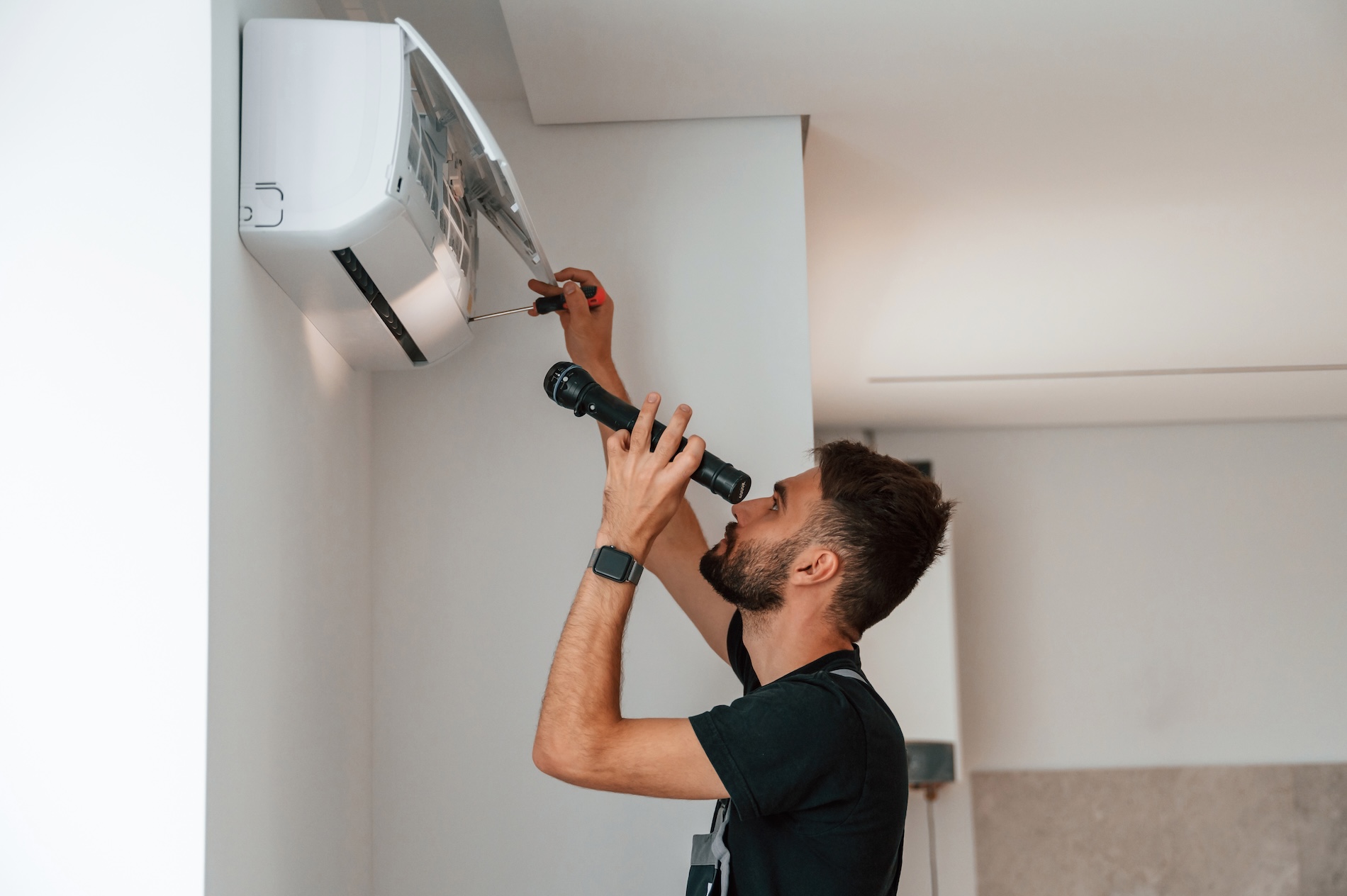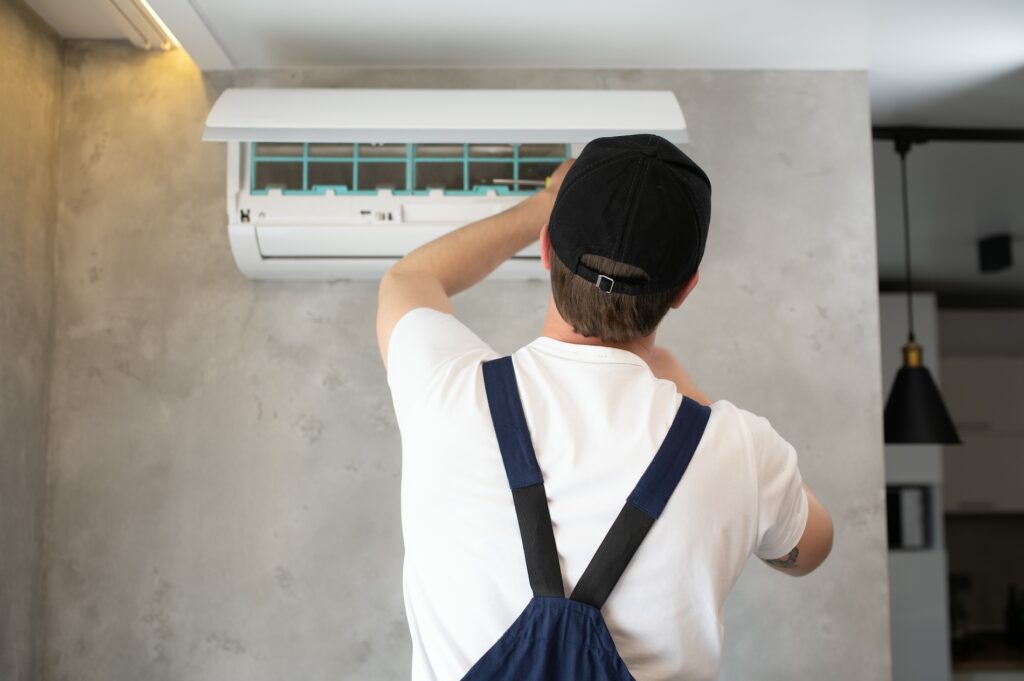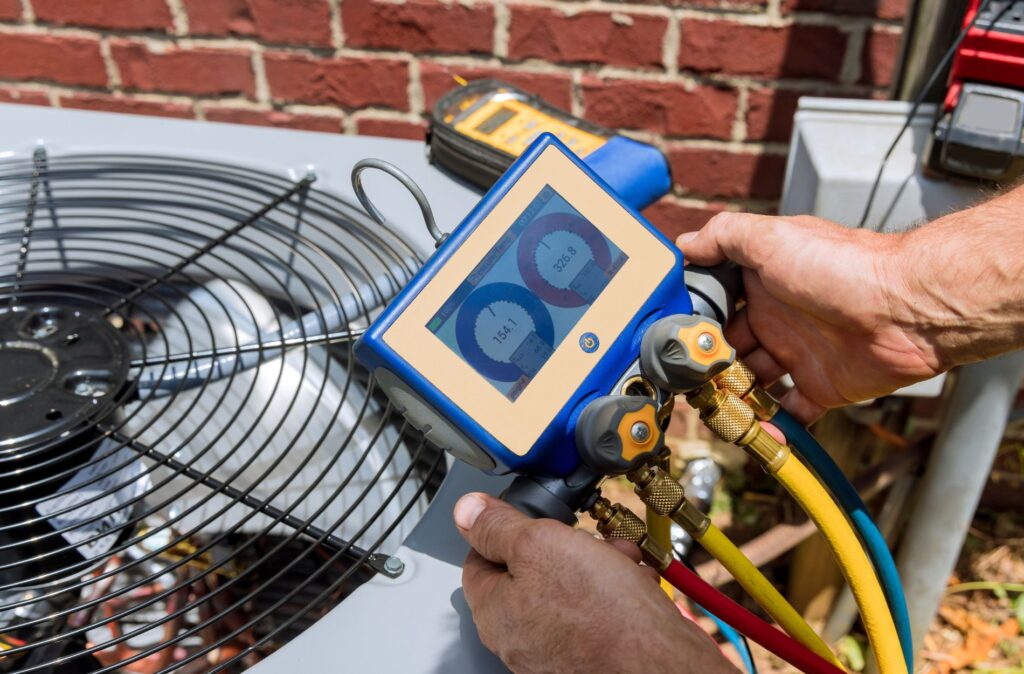When summer hits Columbia, Maryland, the last thing anyone wants is a broken AC unit. With heat and humidity peaking in late August, reliable air conditioning isn’t just about comfort. It plays a big role in keeping your home livable. That’s why it’s helpful to know what warning signs to look for and what fixes might be within reach when your AC stops working the way it should.
We’re sharing some of the most common AC problems homeowners in Columbia often face and what you can check before calling in an expert. If your system isn’t turning on, making strange noises, or blowing warm air, this guide will help you understand what might be going wrong and when it’s time to bring in a technician.
Common AC Problems and Simple Fixes
Your AC shouldn’t be a mystery. When it starts acting up, quick checks can give you a better idea of what’s going on. Below are a few common problems people come across during hot Columbia summers, along with some starting points for troubleshooting. Knowing these can help you reduce downtime or avoid calling for help too soon.
1. AC Not Cooling Properly
If your AC is running but your home still feels warm, try these steps:
– Double-check the thermostat. Make sure it’s set to “cool” and not “fan” mode.
– Replace the air filter if it’s dirty, clogged, or looks gray and dusty.
– Look at the area around the outdoor unit. Remove any plants, leaves, or debris that may be blocking airflow.
If you notice ice building up on the outside coils or the air coming from the vents is warm instead of cool, you could be dealing with low refrigerant. That sort of issue would need expert attention.
2. AC Won’t Turn On
It’s frustrating when your AC won’t even power up. Though it feels like a big problem, sometimes it’s something simple:
– Check the thermostat. Make sure it’s set properly and the batteries are working.
– Go to your home’s electrical panel and look for any tripped breakers that could’ve cut power to the system.
– Look near the outdoor unit to see if the safety disconnect switch got flipped off somehow.
If nothing obvious stands out and your AC still isn’t starting, there may be a deeper electrical or mechanical issue that only a technician should handle.
3. Strange Noises Coming from the AC
Unusual sounds can be one of the early signs that something’s going wrong. These might include clicking, banging, squealing, or rattling. Here’s what that might mean:
– Clicking could signal a failing capacitor or something electrical.
– Loud banging might point to loose parts or a damaged compressor.
– Squeals often come from worn-out belt systems or bad motor bearings.
An AC in good condition should run quietly other than the fan and airflow. If your system starts making new or loud sounds, it’s smart to turn it off and call for help before there’s more damage.
Knowing what to look for and trying these simple corrections can get your AC back up and running. If things still aren’t right, it might be time to bring in backup.
When to Call a Professional
Not every AC issue can or should be handled on your own, especially when comfort, cost, and safety are on the line. Here are some signs that it’s time to contact a technician for professional AC repair in Columbia, Maryland:
– Electrical Issues
If your circuit breaker keeps tripping when the AC runs, or you smell burnt wiring from the unit, stop troubleshooting right away. Electrical repairs are risky and should always be handled professionally.
– Refrigerant Leaks
Your AC needs refrigerant to produce cool air. A leak causes the system to blow warm air or ice up. If you hear a hissing sound or notice frost building up on the coils, it could point to a refrigerant problem. This isn’t just a fix-it-yourself issue—it needs licensed handling due to safety and environmental concerns.
– Repeated Cooling Failures
You’ve checked the thermostat, replaced the filter, and made sure the outside unit is clear, but your AC still doesn’t cool. This could be a sign of a faulty compressor or a failed evaporator coil. These repairs are best handled by professionals and often require specific tools and parts.
Calling a professional service quickly can prevent bigger, costlier breakdowns. It also ensures your AC will get back to normal without unnecessary stress or delays. Reliable help can often mean the difference between a simple repair and a full replacement.
Preventative Maintenance Tips
Avoiding AC problems starts with routine care. A few small tasks done regularly can extend the life of your unit, lower your energy bill, and keep systems running when heat peaks in Columbia. Here’s what homeowners can do to stay ahead of serious AC issues:
– Change Filters Regularly
One of the easiest ways to keep your AC efficient is replacing the air filter. Do this every one to three months depending on usage, pets, and allergies. A clean filter improves airflow and keeps particles out of your AC unit.
– Clean Around the Outdoor Unit
Leaves, branches, grass clippings, and other debris can collect around or inside the exterior part of your system. Keep a two-foot clearance around it to help with airflow. You can also hose down the unit gently to remove surface dust and dirt.
– Schedule a Professional Inspection
A yearly inspection by an HVAC specialist can catch smaller issues before they turn into big ones. These check-ups often include cleaning of coils, checking refrigerant levels, inspecting wires, and confirming the system’s performance. Regular tune-ups like this help ensure your AC keeps cooling efficiently all summer long.
A consistent maintenance game plan saves money, reduces downtime, and gets you better performance from your system overall.
FAQs
What are common signs of AC problems?
Common signs include the AC not cooling properly, not turning on, or making strange noises like clicking, banging, or squealing.
What simple fixes can I try if my AC isn’t cooling?
You can double-check the thermostat settings, replace a dirty air filter, and remove any debris blocking the outdoor unit.
When should I call a professional for AC repair?
Call a professional for electrical issues, refrigerant leaks (indicated by hissing or frost), or repeated cooling failures after trying basic troubleshooting.
How often should I change my AC filter?
You should change your AC filter every one to three months, depending on usage, pets, and allergies.
Why is professional AC inspection important?
A yearly professional inspection can catch small issues before they become major problems, extend the life of your unit, and ensure efficient cooling.
Keep Your Cool All Summer Long
Columbia summers get hot fast, and a dependable AC system makes all the difference. Whether your unit is blowing warm air, making strange sounds, or working harder than normal, spotting problems early can help avoid bigger issues. Routine upkeep along with quick responses to warning signs will keep your home comfortable—it’s all about staying ahead.
Knowing the limits of what you can solve yourself is just as important as recognizing when to reach out. For difficult problems like refrigerant leaks, strange noises, or non-stop cooling issues, it’s best to leave the tough stuff to a pro. With the right steps and a little support, your AC will keep humming through the hottest days.
If your AC isn’t keeping up with Columbia’s summer heat, don’t wait until a small issue becomes a costly repair. Take care of your comfort with professional AC repair in Columbia Maryland from the team at Complete Climate Services. We’re here to make sure your home stays cool and comfortable when it matters most.



